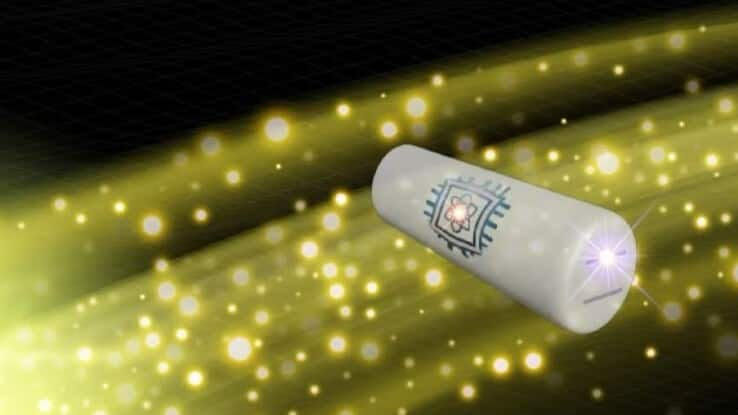
Search for elusive gravity particle might finally be over
What's the story
The graviton, a hypothetical particle believed to carry the force of gravity, has remained undetected for over a century. However, a new study led by Stockholm University offers a promising approach to detecting these elusive quantum entities. The research team has proposed an experiment that could measure the "gravito-phononic effect" and possibly capture individual gravitons for the first time.
Process
Theoretical experiment to detect gravitons
The proposed experiment involves cooling a massive 1,800kg bar of aluminum to just above absolute zero, and connecting it to continuous quantum sensors. The team anticipates that gravitational waves will cause the instrument to vibrate at minuscule scales. These vibrations could be detected by the sensors as a series of discrete steps between energy levels, each marking the detection of a single graviton.
Verification
Cross-checking with LIGO facility data
The research team plans to cross-check any potential signal against data from the LIGO facility. This step is crucial to ensure that the detected signal originates from a gravitational wave event, and not background interference. However, there's a catch. The sensitive quantum sensors required for this experiment do not yet exist. Despite this challenge, the team remains optimistic about developing them in the near future.
Future
Optimism and motivation for future quantum-sensing technology
"We're certain this experiment would work," said theoretical physicist Thomas Beitel, an author of the study. "Now that we know that gravitons can be detected, it's added motivation to further develop the appropriate quantum-sensing technology. With some luck, one will be able to capture single gravitons soon," he added. This optimism fuels hope for advancements in quantum-sensing technology and potential breakthroughs in detecting elusive gravitational particles.
Implications
Gravity's role in the Standard Model of quantum theory
Gravity is one of the four fundamental forces of physics and plays a crucial role in our daily lives. However, it remains largely mysterious due to its weak interaction with other forces. The detection of gravitons could significantly enhance our understanding of gravity and its integration into the Standard Model of quantum theory. This could potentially lead to new insights into the fundamental workings of the universe.